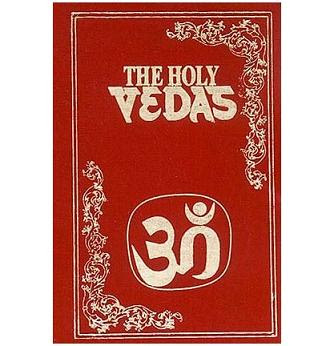Prophecy On The Coming of Prophet Muhammad (Peace be upon Him) in Other Scriptures




To many, it may be a great wonder and almost unbelievable if it is said that PROPHECIES - regarding the coming of prophet Muhammad (s.a.w) - appear in the Sacred books of OTHER
RELIGIONS.
The Sacred books are supposed to have been revealed, or written, many centuries before the coming of prophet Muhammad (s.a.w). In order to understand how these prophecies appear in other religious Scripture, one must understand this:-
From the time of appearance of Man on earth - from the time of Adam - God has been appointing a most righteous man among a society as a prophet of that period, to guide mankind towards truth and ultimate goal of reaching Him, whenever mankind slips into moral disaster and aimless life.
All prophets - from the first to the last (and there were more than one hundred thousand of them (peace be upon all of them)) Preached the same message, namely:-
- "There is no god except the only God - the Creator and Sustainer of the whole universe and its contents."
- "Pray only Him, and no others."
- "Believe and follow the messenger (of that period of time)."
- "Do good; and avoid evil."
And all these prophets have prophecied the coming of last prophet - Muhammad (s.a.w.) -
IN HINDU SCRIPTURES

The scriptures of Hinduism, known as Vedas, Shastras, Puranas, etc are all in Sanskrit Language. It is universally accepted that Sanmskrit had been one of the languages in the world. In this Sanskrit Language, there is a scripture known as "BHAVISHA PURANA". This is supposed to have been written by the Sage, Maha Rishi Viyasar.
In this Verse (Parvam:3 Part 3, chapter3; verse 5-8 ) , the name "Muhammad" is mentioned directly as "Mhaamat" at the beginning of the second sentence. Also, in this, there is very clear prophecy regarding prophet Muhammad (s.a.w.).
The translation reads as follows:-
"A 'Milechar' (a foreigner) will appear as a teacher of a new religion, with the help of his friends. His name would be 'Mahaamat'. A king of this land will give great respect to his teaching; and praise him. Cleansing himself with Gangeswater and Panjagouyam,he would say, "I whole-heartedly follow you". He (Mahaamat) would be devoid of all sins. Coming from dry (desert) land, he would be very holy. He will fight against evil forces. He will gather warriors, for this purpose. He will give protection even to enemies."
"King of this land" giving great respect to Mahaamat's teachings - refers to a South Indian King by name of Cheramaan, who had trade contacts with Arabs and later became a Muslim at the time of prophet Muhammad (s.a.w.).
"Adarva Veda" is Sanskrit Scripture, that was written even before "Bhavisha Purana." It is not known how many hundreds of years before the birth of prophet Muhammad (s.a.w) was Adarva Veda written. In this scripture, in Episode (Kandam) 20, Chapter (Sutra) 127 Verse (Mantra) 1, 2, 3 reads as follow (translation) :-
"Oh Mankind, listen with complete belief: A man, who will be of all praise, will be created amongst mankind. We shall provide him sanctuary against his sixty thousand and ninety enemies. He and his friends will come in twenty camels; the dust stirred by these camels will be so much as to cover the horizon. He will give gold. horses and cows as gifts."
- "Man of praise" refers to prophet Muhammad (s.a.w.). In fact the actual meaning of the Arabic word 'Muhammad' means "be praised."
- It is not known exactly how many enemies prophet Muhammad (s.a.w.) had at his time; but it is however established that there were thousands.
- When he made his Hijrah (emigration) from Makkah to Madinah, he went on camels.
- Whatever gold, horses and cattles that prophet Muhammad (s.a.w.) received, he gave away as gift to the poor and needy.
From these it is very clear, the verses in Adarva Veda prohecies the coming of prophet Muhammad (s.a.w.) In another chapter of 'Adarva Veda' - Chapter 1, Verse 10 - the translation reads as follows:-
"Allah is complete. (The word 'Allah' do appear in the original Sanskrit text). The whole universe belongs to Him. Mahamat (Here again, the word 'Mahamat' do appear in the original text) whoglorifies God's existence, is His Messenger. Oh, God! Oh, God! God, who activated the universe, is the Creator ans Sustainer of the earth. There is only One God, no one else. Behold the magnitude of The Formless God! God, who revealed this Adarva Veda containing "On Herim', created mankind, cattle and everything. Pray only The Formless One - God. Mahamat, who will destroy the evil with 'On Reem' prayer, is Allah's Messenger. There is no other god except the Omnipresent God"
(Allobanished 1:10)
In another of the four Vedas - in Rig Veda - it is said: "Mahamat, who is truthful, knowledgeable and powerful, will bless me. He is a Blessing for the whole world. He is glorified with ten thousand people."
(In Al-Quran, prophet Muhammad (s.a.w) is refered to as "Rahmatun - Lil -Alamain". Meaning "Blessing for the whole world" - same phrase as appears in the above quotation. Also, the mention of ten thousand people refers to the ten thousand sahabat (friends) of prophet Muhammad (s.a.w) who accompanied him when he marched into Makkah.
In Same Veda - one of four Vedas of Hinduism - too, this is prophecied as:
"A man called Mamma (Muhammad) will attain victory with ten thousand people.".
In the Bible too, in Deutronomy, this coming with ten thousand people is stated as below:-
"...................... he shone from Mount Paran he came with the ten thousands of holy ones .................."
(Deuts 33:2)
IN PHARSI SCRIPTURES
Pharsi Religion (the religion that was practised in Iran in pre-Islamic era) is one of the oldest religions on the world. Its Scriptures are known as "Dasatir" and "Jant Avasthe".
In the 'Dasatir' in its 14th Verse, Islamic principles appear with administ laws.
In these Verse, Prophecy about prophet Muhammad (s.a.s.) are stated very clearly. It says (translation):
"When Persian morality declines to lowest, a man will appear from Arabia. Those following him will choke the Persian Crown, religion and everything. The authority and control of Persia will go to them.
The idols in their (Arabic) permanent temple (Kaaba) built by their ancestors will be removed. But, people will give immense honour to the empty temple. Das and Bulk (two big cities of thet time in Persia) will fall. The learned people and others of Persia, will join those who follow him (prophet Muhammad s.a.w.). This older Persian scripture is still found in present - day Iran.
Due to ignorance of the true concepts of the teachings of Budha, many Buddhists believe that in Buddhism there is no place for BELIEF IN GOD! But, many archaelogical findings prove to the contrary - Buddha has emphasised to believe in One God and he has prophesied the coming of prophet Muhammad (s.a.w.). A famous scholar, Arthur Lily, says that the following was seen as an inscription on a stone - slab as the saying of Buddha:-
"Believe in God and do whatever righteous things He has commanded you to do; because He is the Only One, Who is fit to be prayed and showed your humbleness. I declare openly that there is no other way equal to this belief (of One God) to attain the Bliss of Heaven. So oh, my people, put in all your efforts, to attain this highest goal".
(Quotation from Book title "India in Primitive Christianity" - Page 85)
IN BUDHIST SCRIPTURES

Budha could have been one of the many prophets; and he too had prophecied the coming of prophet Muhammad (s.a.w.).
'Thikanikaya' is one of the Budhist Scripture. In it, is stated that 'Maitriya' will finally come.
(The word "Maiteiya' - or 'Metteya' in Bali language and all corresponding words used in Burmese, Chinese Tibetian, or Japanese - carry the same meaning; namely same as "Rahmat" in Arabic, meaning "Blessed". And prophet Muhammad (s.a.w.) has been proclaimed by God Himself in al-Quran as "Rahmath - Lil - Aalameen"- Blessing for the whole world).
It is stated in book "Arshagyanam" (Page 282), as Buddha having said,
"All must believe the 'Maitriya', the prophet to come."
IN CHRISTIAN SCRIPTURES

The Holy Bible - in 'Song of Solomon' 5:16 reads as follows (in the original Hebrew Language).
"Hikko Manittadim Vikkulu Mahamadim Zahyudi Vezeur Raai Benute Yafus Halam".
"His speech is most sweet (His teaching are most sweet). He is Mahamad. He is my beloved; he is my friend. Oh, daughters of Jerusalam, I love him very much".
(In the Bible in other language).
In this song, in Hebrew language, the word Mahamad is mentioned very clearly. The last two letters-- im' which come with that word, are used as 'word of respect' in Hebrew language. The Jews do sing this hymn even today; but do it as some sort of rites; without really realising what they are reading. (In the Bible of other languages -- English etc, that phrase has been translated as "He is altogether lovely" -- the original word Mahamad being left aout and replaced with "altogether lovely" !! -- for reasons known only to the translators.
Also, in Deutronomy 18:18, it says as God saying to Moses:
"I will raise them up a prophet from among their brethren, like unto thee, and I will put my words in his mouth; and he shall speak unto them all that I shall comman".
Although Christians may say that this prophecy refers to Jesus Christ, if the verse is carefully analysed, it can be clearly understood that it refers to prophet Muhammad (s.a.w.).
a) Other than the fact that both Moses and Jesus were Jews and that both were prophet there are no other similarity
b) If it is to be said that Jesus befits this verse because of these facts, then it can be claimed that the prophets Solomon, Isaiah, Ezekiel, Daniel, Hosea, Malachi, John The Baptist etc., should also fit this verse; because all of them were Jews and prophets.
Where as, Moses ans prophet Muhammad (s.a.w.) were alike because:-
- Moses and prophet Muhammad (s.s.w.) both brought new covenants to the people of the time. Jesus did not bring any new covenant but he came to affirm and testify existing laws brought by Moses as he himself says in Matthews 5:17 - 18:-
- "Think not that I am come to destroy the laws, or the prophets. I am not come to destroy. but to fulfil".
- Moses and Muhammad both had father and mother. Jesus had mother, but not father.
- Moses and Muhammad (s.a.w.) married and be got children. Jesus remained a bachelor.
- Both Moses and Muhammad (s.a.w.) died natural death. Jesus according to Christianity, was violently killed on the cross.
- Both Moses and Muhammad (s.a.w.) finally attained leadership and authority over their society. They were both unproclaimed kings of their people. Jesus did not attain this.
- Also the verse says "FROM AMONG THEIR BRETHREN".
- Ishmael (Ismail) and Isac (Ishak) are sons of the same father, prophet Abraham (Ibrahim a.s); and so they are brothers. Thereby, the children of one are 'BRETHREN' to the children of the other. The children of Isaac (Ishak) are Jews; and the children of Ishmael (ismail) - who are Arabic are their "BRETHREN". The bible affirm this:-
"And he (Ishmael) shall dwell in the presence of ALL HIS BRETHREN".
(Genesis 16:12)
"And he (Ishmael) died in the presence of ALL HIS BRETHREN".
(Genesis 16:12)
The children of Isaac (Ishak) are brothers of Ishmaelits (Arabs). Likewise Muhammad (s.a.w.) is from among the BRETHREN of the Israelis (Followers of Moses) because Muhammad (s.a.w.) was a descendent of Ishmael (Ismail), the son of Abraham - fulfilling the prphecy of the verse:
".... from among their brethren"
(Deut. 18:18)
Also, the verse goes on: ".....AND I WILL PUT MY WORDS INTO HIS MOUTH". Not even one Quranic verses are words of Muhammad (s.a.w.). They are words, which he heard through angel Gabriel (Jibrael) and repeated word for word. None of them are his. He merely repeated what "was put into his mouth".
AND, Jesus too confirms this, by saying:
"I have much more to say to you, more than you can bear. But when he, the Spirit of Truth comes, he will guide you into all truth. He will not speak on his own. He will speak only what he hears and he will tell you what is yet to come"
(John 16:12, 13)
Thus, Moses, in Old Testament and Jesus in the New Testament prophecy the coming of the last prophet - prophet Muhammad (s.a.w.).




0 Comment to "Prophet Muhammad (Peace be upon Him) in Other Scriptures"
Post a Comment